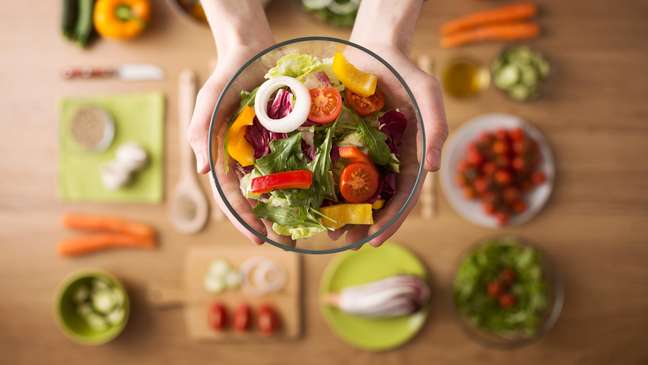We interviewed chef Daniel Aquino, specialist in sustainable gastronomy, to teach us what it is and how to apply it in our daily life.
Did you know that? Is a third of the food produced annually for human consumption lost or wasted? These data come from a survey conducted by the United Nations Food and Agriculture Organization (FAO). Precisely for this reason today, June 18, we celebrate the Day of Sustainable Gastronomy, a date chosen by the United Nations (UN) to remind us of the importance of the full use of food in our foods, aiming at the least possible waste.

And to better understand how we can help reduce this waste and understand what this Sustainable Gastronomy is, in fact, we spoke to Daniel Aquino, Executive Chef of Unique Garden, a specialist in this type of gastronomy and who applies the concept of the “farm to table” in his work, using the ingredients collected from the gardens, greenhouses and gardens of the hotel to assemble his dishes.
What is sustainable gastronomy?
Daniele Aquino: To talk about sustainable gastronomy, we need to understand the three pillars of sustainability: social, economic and environmental.
Social: is directly related to human beings and the well-being of workers, the target audience and the surrounding society. It deals with: health, education, leisure, healthy work environment and training, not just for its employees.
Economic: it’s the balance between producing and offering your products and services fairly compared to your competitors. Taking care of the harmony of the ecosystem that surrounds you.
Environmental: Minimize as much as possible any environmental impact in the short, medium or long term, better use of the entire product (stalks, peels, seeds) and carry out the correct separation of food waste and by-products (packaging in general). In addition to seeking local producers wherever possible, providing opportunities for trade growth, generating jobs and income for society. A good example is making the most of seasonal produce from your region.
Thanks to all the advantages mentioned above, the current generation is more aware and concerned about the environment, consuming less industrialized products, with fair trade, zero carbon emissions and balance in the production and destination of waste.
How do you apply sustainable gastronomy in your work?
Daniele Aquino: As a professional, my process begins within the three pillars: we try to hire and train local employees, providing all the support and ideal conditions for the development of their work. We also look for local producers, create seasonal menus and strictly respect the environment, with optimal use and recycling of waste.
Our goal, in addition to respecting and providing opportunities within our region, is to make our employees and guests aware of the importance of the pillars of sustainability.
How to apply sustainable gastronomy at home?
Daniele Aquino: By bringing this into the daily routine of our homes, we can take some initiatives to maintain conscious consumption: buy seasonal products, also buy from suppliers with sustainability seals, reduce and manage waste, recycle and not just worry about nutritional tables.
The future of sustainable gastronomy is today.
Source: Terra
Benjamin Smith is a fashion journalist and author at Gossipify, known for his coverage of the latest fashion trends and industry insights. He writes about clothing, shoes, accessories, and runway shows, providing in-depth analysis and unique perspectives. He’s respected for his ability to spot emerging designers and trends, and for providing practical fashion advice to readers.








